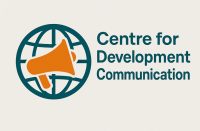Lokoja Journal of Information Science Research, Vol. 2 No. 1 (2024) AUTHOR: Audu Liberty Oseni
Abstract
A good number of development programs in Nigeria fail due to the inability of the state and non-state actors to facilitate active community participation in decision-making on issues affecting them through a participatory communication process. In a sample representation of an estimated 18,000 population in the Mpape community of Bwari Area Council, Federal Capital Territory Abuja, Nigeria’s capital city, North-Central Zone, the study was conducted to provide an understanding of the role of participatory communication in community development using the Mpape community as a case study. Using participatory communication theory and primary sources of data gathering and analysis methods through Focused Group Discussions (FGDs) and Key Informant Interviews (KIIs), the study found that participatory communication facilitates full community involvement in addressing issues affecting them through a communication process. Also, the study established that community development initiatives that embraced participatory communication are more successful and sustainable than those that excluded participatory communication. The study concluded that participatory communication plays a significant role in community development. It facilitates a process that enables community members and all stakeholders to be actively involved in dialogue and negotiation of locally driven solutions on issues impacting them through a communication process. The study recommended that development intervention programs by the state and non-state actors should deploy a participatory communication approach to achieve success and sustainability.
Keywords: Communication, Communicty, Development, Participatory Role
